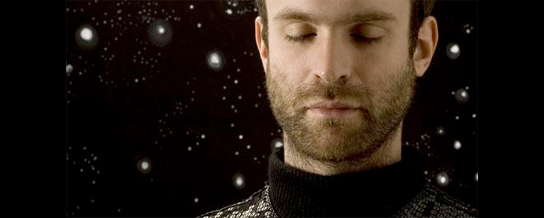Tim Exile Goes Electro-Pop
Tim Exile used to be known as a junglist, a crafter of twitchy breakcore that […]

Tim Exile Goes Electro-Pop
Tim Exile used to be known as a junglist, a crafter of twitchy breakcore that […]

Tim Exile used to be known as a junglist, a crafter of twitchy breakcore that could decorate a dancefloor like splattered paint. His catalog of tracks spans across labels such as Moving Shadow, Evol Intent, Distinct’ive Breaks, and Planet Mu, the latter of which issued his Pro Agonist and Tim Exile’s Nuisance Gabbaret Lounge records.
But his latest album, The Listening Tree, finds the producer (born Tim Shaw) taking a different path. “There are a few strands that run through [the album],” Shaw explains via phone from his current base in Berlin. “One of them is kinda like personal breakthrough and transcending. And another one is frustration with society and also with myself, I guess. There’s a nerve between myself, my fears, anxieties and hopes, and how they’re mirrors of how I see society.”
A meditation on humanism and technology in the spirit of Thomas Dolby’s The Golden Age of Wireless and Depeche Mode’s Black Celebration, The Listening Tree features dramatic, synth-infused introspection on “Don’t Think We’re One” and the title track, where Exile compares one’s inner conscience to a mystic tree of life. The centerpiece is the amazing “Family Galaxy,” which speeds and slows tempos, working up to a maddening breakneck pace as Exile sings, “Family galaxy wants you to come and play and change every day/Come and play in the stars/They’re all ours.”
“[The songs] also reflect a fantasy of what it’d be like if we all broke free,” he says. “I’m a big believer in the transformational power of technology if it’s put to good use.”
The Listening Tree may seem like a pagan metaphor for God, but it’s not. Shaw, a native of London, remembers singing in the church choir as a youth, but doesn’t consider himself a Christian. “I think I was there more in mind than in spirit,” he jokes. As a teenager, his girlfriend at the time converted him to a form of New Age Christianity “for about six months, until I realized how crazy it was.”
Exile professes not to practice any religion, yet definitely comes off as a seeker of some greater purpose, spiritual or otherwise. If there’s any common ground between the high-minded, song-based progressivism of The Listening Tree and the hard-stepping gabba of his prior work, it’s that both flip through musical styles quickly while retaining a melodic, accessible core.
“All I have is a conscious flow of consciousness that ties my previous albums to now. It’s quite a good illustration of how quickly the flow of consciousness changes for me,” says the 30-year-old Exile. “I guess it’s the process of getting old and wanting to do things differently.”

